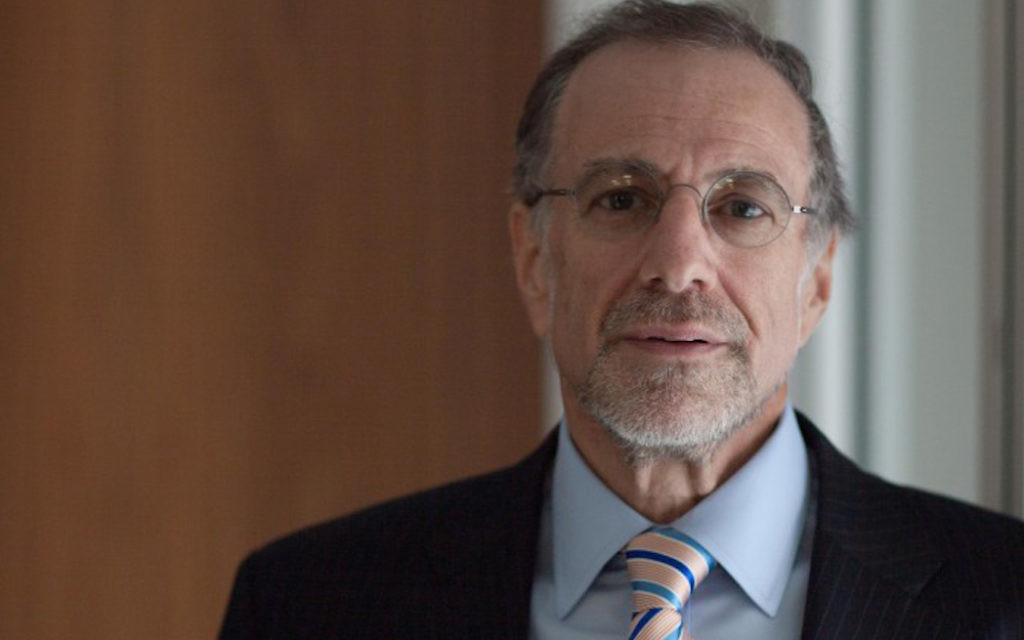OPINION – Sir Mick Davis: Israeli politics violates values of the Diaspora
One of the UK Jewish community’s biggest donors to Israel says the breakdown of its liberal democratic values is an existential challenge to relations with the diaspora
This Yom Ha’atzmaut, as ever, we celebrate the miracle of Israel and its achievements – as a Jewish and democratic state, a scientific and creative powerhouse and the beating heart of the Jewish people, rebuilt, sovereign and thriving after the ravages of a traumatic past. We reflect on Israel’s existential challenges.
Israel remains surrounded by hostility but its emerging existential threats come from within. Its simultaneous status as both a parliamentary democracy and a Jewish state, the social mobility that has helped drive its success, its social cohesion and national ethos and its mutually sustaining relationship with the Jewish Diaspora are all under threat. Not only from Israel’s numerous and malign enemies, but from its own dysfunctional political system.
Light-hearted quips about the hazards of proportional representation no longer bring a smile when, after three elections in a year, the outcome is a government the public didn’t vote for, led by a prime minister seemingly driven by holding onto power and propped up by parties who had previously pledged on principle not to govern with him.
Get The Jewish News Daily Edition by email and never miss our top stories Free Sign Up
Israel’s hyper-proportional system, and largely unwritten constitution, relies on the principles and integrity of those who govern, and an immutable set of values reflected in Israel’s declaration of independence. Yet in the country of Ben Gurion, Begin and Rabin, principle appears to be a relic of political history. Avoiding corruption charges is not a principle for governance. Nor is promising your voters not to serve a prime minister facing such charges only to U-turn and enable him.
In the absence of principle, narratives of strength, resilience and hope give way to those of fear, intolerance and victimhood. During the campaigns, Gantz appealed for votes not based on a compelling alternative vision but as anyone but Bibi.
A political system in which parties seek power with no concept of what to do with it cannot address the strategic challenges facing Israel and the Jewish people. Four such challenges spring to my mind.
Firstly, Israel needs a vision for its future relationship with the Palestinians. Talk of peace might be passé or premature depending on one’s viewpoint, and that might well be for reasons that can be pinned confidently on the Palestinians. However, Palestinian dysfunction, corruption and intransigence were previously an obstacle for Israel to overcome, not a set of values to emulate.
For a decade, however, Israeli governments and oppositions have pretended that Israel’s relationship with the Palestinians can be ignored. High on Trump, and his plan that indulges that pretence, the only vision for the Palestinians now in the public discourse is one of annexation. An agenda that doubles down on risk is incomprehensible when, post the Covid 19 onslaught, the scales are so lopsided to the down side. When we talk of existential threats to Israel, then annexation is the genuine article. Trump is temporary, the Palestinians and Israel’s moral and strategic imperative to extricate itself from ruling over them is not. Israel needs a political system and political leaders, in government and opposition, capable of addressing this issue honestly and strategically. Yet no party offered a tangible alternative on this issue, denying Israelis any real choices on a fundamental question.
Secondly, Israel must radically improve social mobility within its own society. Its move from a more managed economy to a dynamic, free market economy has been a global success story, gifting the world its creativity and tech innovation. Yet for an OECD country, Israel’s gaps between rich and poor are extraordinary. Israel faces inherent productivity restraints due to long-term failures to invest adequately in infrastructure. But politicians obsessed solely with their own survival cannot address the long-term economic needs of a free market society. The day-to-day responsibilities of government to stimulate the market and provide opportunity for all of its citizens, not just a high tech few, have been neglected.
Thirdly, Israel’s system has widened the social divisions it needs to bridge. President Rivlin has been a lonely and symbolic figure in healing those divisions in stark contrast to politicians who have exploited and pandered to them. Israel’s system, fragmented along sectoral lines, has inflamed the rifts, fragmenting a country whose sense of national mission has been key to its survival.
The keep your wallets open and mouths shut model of Israel-Diaspora relations was viable when Diaspora Jewry saw in Israel’s political leadership an embodiment of its values rather than a violation of them. As large swathes of the Diaspora see Israel’s liberal democratic values under threat, Diaspora Zionism will dwindle, leaving the case for Israel solely in the hands of hard right cheerleaders. That would, in my view present an existential challenge to Jewish life as we know it, and a strategic threat to Israel.
Israel advocates around the world, of which I am one, boast about the full citizenship rights of Israel’s Arab citizens and their role in Israeli life. However, the MKs those citizens elect are still considered governmentally trayf. We cannot use their voting rights to score debating points but simultaneously vilify them for voting in droves. Jewish Israelis need more and better education in Arabic and Arab culture. Arab Israelis need more and better education in Jewish culture and history. Across every divide in Israeli society, between Jew and Arab, religious and secular, Israel’s system is a recipe for national fragmentation not national purpose.
Fourthly, Israel needs a government capable of laying out a vision of Israel’s relationship with the Diaspora. That relationship is taken for granted and is stagnating. The keep your wallets open and mouths shut model of Israel-Diaspora relations was viable when Diaspora Jewry saw in Israel’s political leadership an embodiment of its values rather than a violation of them. As large swathes of the Diaspora see Israel’s liberal democratic values under threat, Diaspora Zionism will dwindle, leaving the case for Israel solely in the hands of hard right cheerleaders. That would, in my view present an existential challenge to Jewish life as we know it, and a strategic threat to Israel.
The very concept of Jewish peoplehood, which underpins Zionism, needs refreshing. Israel’s relationship with the Jewish world is unique. Most Diasporas arise by people leaving their country; whereas Israel is a product of its people returning from the Diaspora, and developing a culture distinct from it. Diaspora Jews and Israelis are therefore too often unrecognisable to each other. How for example, can we nurture a thriving and mutual beneficial sense of shared peoplehood, when so many Diaspora Jews, particularly in the English-speaking world are unable to speak Hebrew, the language of their homeland?
Yet, as Zionist communities who place Israel at the heart of our Jewish being we look to Israel for leadership and vision and see only political gamesmanship. Israel’s political system is broken to the detriment of us all and, 72 years after the founding of the state, the time has come to fix it.

Our community depends on the Jewish News to stand up and speak out for us.
Providing news in print and online, and events for the whole community, Jewish News is a force for good with an impactful presence.
The team at Jewish News is always at the forefront of local and world news, keeping British Jews and our allies up to date with all that matters during good times and bad.
The Jewish News is the trusted mouthpiece of the community: our eyes, our ears, and our voice. Our Jewish News.
That’s why we’re asking for your support.
Together our voice is louder.
Please donate to our match funding campaign
-
By Laurent Vaughan - Senior Associate (Bishop & Sewell Solicitors)
-
By Laurent Vaughan - Senior Associate (Bishop & Sewell Solicitors)
-
By Laurent Vaughan - Senior Associate (Bishop & Sewell Solicitors)
-
By Laurent Vaughan - Senior Associate (Bishop & Sewell Solicitors)
-
By Brigit Grant
-
By Brigit Grant
-
By Brigit Grant
























